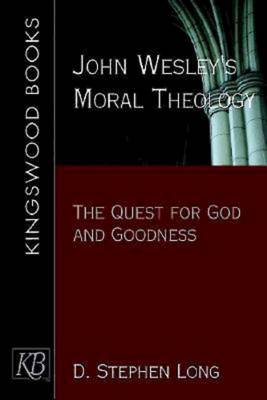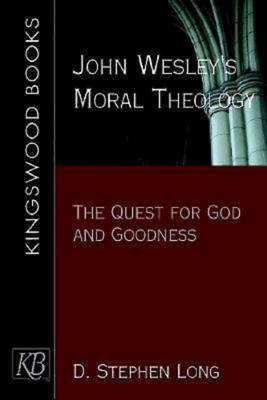
Bedankt voor het vertrouwen het afgelopen jaar! Om jou te bedanken bieden we GRATIS verzending (in België) aan op alles gedurende de hele maand januari.
- Afhalen na 1 uur in een winkel met voorraad
- In januari gratis thuislevering in België
- Ruim aanbod met 7 miljoen producten
Bedankt voor het vertrouwen het afgelopen jaar! Om jou te bedanken bieden we GRATIS verzending (in België) aan op alles gedurende de hele maand januari.
- Afhalen na 1 uur in een winkel met voorraad
- In januari gratis thuislevering in België
- Ruim aanbod met 7 miljoen producten
Zoeken
€ 55,45
+ 110 punten
Omschrijving
The public theology of the Wesleyan tradition is best understood as moral theology rather than as philosophical and applied ethics. Long asserts that the ethical nature of the Wesleyan tradition can be best understood using the frame of moral theology stemming from the virtue tradition, particularly the work of Thomas Aquinas. This recognizes that the gathering of the faithful for the purpose of seeking holiness is the public voice of the church. Because we squeezed the Wesleyan tradition in the academic discipline of philosophical and applied ethics, we distorted our tradition. This distortion led us into our current ethical impasse, particularly with money, war and peace, homosexuality, and technology.An excerpt from the Circuit Rider review: "In John Wesley's Moral Theology, D. Stephen Long offers a radical proposal: By letting Wesley be Wesley in his context and thus being out of step with ours, Wesley actually has more to say to us in our postmodern context. Here, our problem with making him relevant for today is implied in the difference between "ethics" and "moral theology." As a "moral theologian," Wesley believed that doing and knowing what is good can only be achieved by being united with Christ. In other words, the Good and the True cannot be known outside of God. Thus, there is no separation between ethics and theology since the former is only intelligible in the light of the latter." (Click here to read the entire review.)
Specificaties
Betrokkenen
- Auteur(s):
- Uitgeverij:
Inhoud
- Aantal bladzijden:
- 280
- Taal:
- Engels
Eigenschappen
- Productcode (EAN):
- 9780687343546
- Verschijningsdatum:
- 1/04/2005
- Uitvoering:
- Paperback
- Formaat:
- Trade paperback (VS)
- Afmetingen:
- 155 mm x 229 mm
- Gewicht:
- 417 g

Alleen bij Standaard Boekhandel
+ 110 punten op je klantenkaart van Standaard Boekhandel
Beoordelingen
We publiceren alleen reviews die voldoen aan de voorwaarden voor reviews. Bekijk onze voorwaarden voor reviews.









